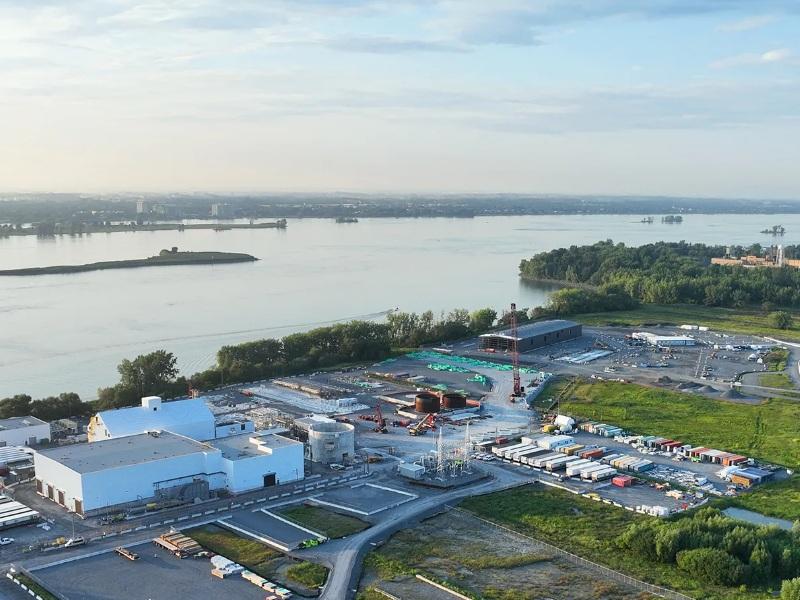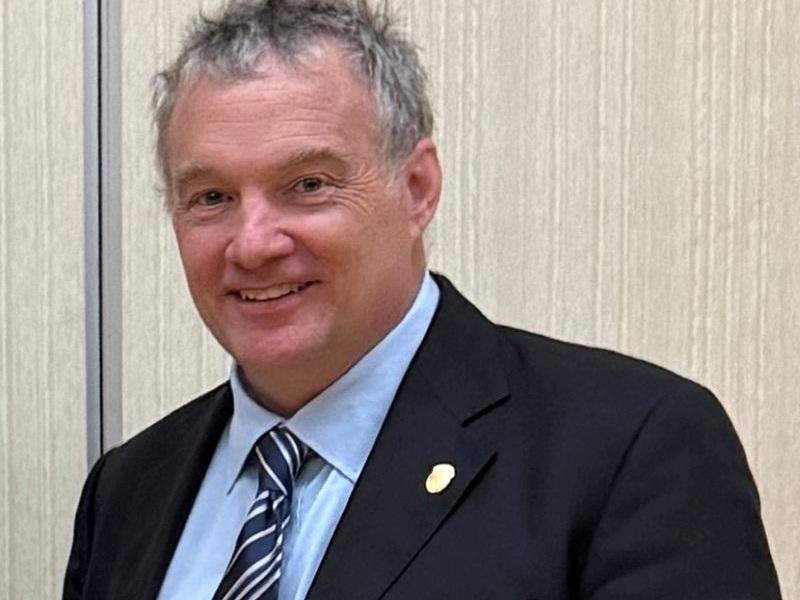
StormFisher Hydrogen has acquired financially troubled Quebec company Recyclage Carbone Varennes (RCV) in a bid to restart development on its biofuel facility.
Located in a Montreal suburb, the facility will be repurposed from RCV’s initial plan to produce methanol fuel from forestry biomass and green hydrogen. Instead, Toronto-headquartered StormFisher intends to use green hydrogen and captured carbon dioxide (CO2) from local industries to produce low-carbon methanol.
The financial terms of the acquisition were not disclosed.
The facility is scheduled to begin operations in 2028, and supply over 72,000 tonnes of low-carbon methanol per year to the maritime, aviation and chemical industries. StormFisher anticipates it will capture and reuse over 100,000 tonnes of CO2 per year.
In a Wednesday morning release, StormFisher said its approach is more proven than RCV’s while also being “simpler, cleaner, more reliable and more resilient,” and will reuse a part of the existing infrastructure.
"We have long wanted to establish ourselves in Québec, and we are delighted to have found the right opportunity with this project.” Judson Whiteside, CEO of StormFisher, said in the announcement.
StormFisher aiming to reverse RCV’s fortunes
StormFisher develops, owns and operates low-carbon synthetic fuel projects in North America, such as a renewable natural gas facility in London, Ont. and a food waste recovery site in Drumbo, Ont. that produces material to supply anaerobic digesters.
Based in Varennes, RCV was a notable entrant in Canada’s low-carbon fuels sector. The company had ambitious plans to produce approximately 130 million litres of biofuels per year.
To match those high expectations, it received more than $650 million in funds from the Canadian and Quebec governments since 2020, according to Le Journal de Montréal. The Canada Infrastructure Bank, for example, loaned RCV $277 million in 2023.
But the company was unable to secure the financing to complete the facility. One of its limited partners, the Swiss-based methanol producer Proman, did not provide the funds RCV needed to bring the facility to fruition, according to Insolvency Insider. As a result, the company sought creditor protection, which was granted in March.
RCV blamed the volatile state of the biofuel market for its challenges, La Presse reported.
A document issued by the Superior Court of Quebec on Oct. 8 states RCV had spent $950 million to finish the project, which was valued at $1.5 billion. The total cost was elevated from an initial estimate of $1.3 billion.
The biofuel plant is 75 per cent complete, according to the court document, while the hydrogen electrolyzer plant is 45 per cent complete.
In the Wednesday release, StormFisher said it has a strong track record of corporate turnarounds, international capital fundraising and foreign direct investment. By focusing RCV’s facility on more proven technology, StormFisher is reducing risk, it adds.
"This is more than an acquisition: it is a commitment to Québec and to the decarbonization of local and industries worldwide," Whiteside said.










